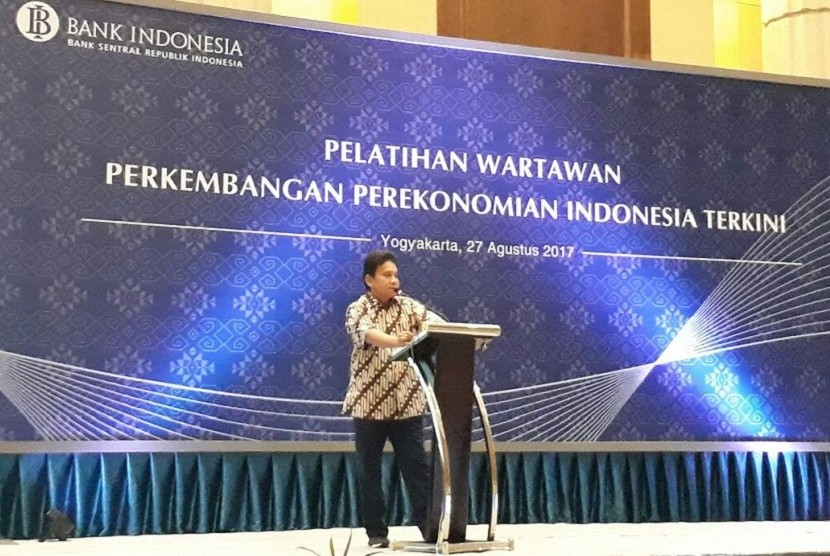REPUBLIKA.CO.ID, JAKARTA -- Bank Indonesia (BI) said falling value of the national currency rupiah against the U.S. dollar in the past several week is only temporary. Rupiah has continued to weaken to the level of 14,000 per dollar, but it would not crash as in 2013, Senior Deputy Governor of the Central Bank Mirza Adityaswara said here on Monday.
Mirza said the main cause of the volatility of the currency is the policy of the U.S. central bank, The Federal Reserve, which raised its benchmark interest rate (Fund Rate) last March and plans to further set it higher two more times later this year.
"We are in the middle of a situation when the providers of foreign exchange in the world raised their interest rate and a number of central banks in the world already raised their interest rates. Certainly they cause volatility," Mirza said in a National Seminar on "Expansion and Financing of Export Oriented Labor Intensive Industry".
Also read: 'Rupiah weakening does not reflect fundamentals of economy'
He said in 2013, when the Fed only began to give signals that it would raise its fund rate, rupiah already crashed with a depreciation of 26 percent in the whole year. Similarly in 2015 , rupiah fell with a big bang on The Fed raising the interest rate of its benchmark interest rate for the first time.
He said this year although rupiah is weakening against the U.S. dollar, the condition would not be as it was five year ago as the country's macro economic indicators are relatively good.
"In 2018 , there was a minor jolt, but we believe it would not long . It would not be as bad as in 2013 as we has succeeded in keeping the macro economic indicators well under control such as inflation and fiscal condition. At the same time the government has continued to launch deregulation measures," he said.
Mirza said, actually the world condition is favorable with the U.S. economic condition improving, so is the European, Japanese, Chinese and Indian economy.
Growing economies would certainly be followed with rising inflation because of the rapid growth pushing up demand and prices, he said.
"The response is world interest rate is climbing , certainly preceded by the United States as the provider of dollar liquidity, and trade and investment in the world are mainly in dollar. Like it or not the condition is like that," Mirza said.
The Central Bank sees that the U.S. interest rate would still climb up until it reached 3 percent from now 1.75 percent.
"The U.S. interest rate would continue to go up. Now it is 1.75 percent. Perhaps it would head for a 3 percent level. This year it (the increase) was still only once. Perhaps, next increases could be in June and September, or June and December, or it could be in June, September, and in December. If the increase is to be three times , the fund rate would be 2.5 percent - not yet up to 3 percent. That means we have yet to face the impact of further increase in the U.S. interest rate. The world interest rates are also already moving upward," Mirza said.
Based on the middle exchange rate of Bank Indonesia, the rupiah value against the dollar on Monday weakened to the level of 13,956 per dollar from the level of 13,943 on Friday last week.


